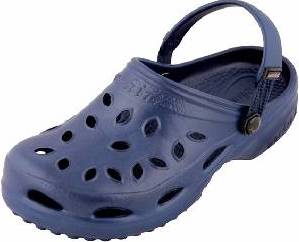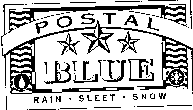Entries from December 1, 2008 - December 31, 2008
Washington Court Finds Trade Dress Claims Trigger Insurer's Duty to Defend

Crocs sued Australia Unlimited for trade dress infringement.
Australia then sued its insurer for failing to provide a defense.
On Dec. 15, the Washington Court of Appeals decided a rare trademark case, finding in part that claims of trade dress infringement triggered an insurer’s duty to provide its insured with a defense.
Seattle-based Australia Unlimited, Inc., filed suit against its insurer, Hartford Casualty Insurance Co., in King County Superior Court claiming breach of contract, bad faith, and violation of Washington’s Consumer Protection Act based on Hartford’s refusal to defend it in three lawsuits.
The lawsuits stemmed from Australia’s producing, importing, and distributing NOTHINGZ-brand shoes. Competing shoe maker Crocs, Inc., alleged claims for trade dress infringement and, after the cases settled, for breach of the parties’ settlement agreement. Australia tendered defense in each instance to Hartford under its commercial general liability and umbrella policies, which Hartford denied.
King County Superior Court Judge Steven Gonzalez granted summary judgment in Hartford’s favor, and Australia appealed.
The Court of Appeals affirmed in part, reversed in part, and remanded for further proceedings.
In summary, the court found: “An insurer’s duty to defend arises ‘if the insurance policy conceivably covers the allegations in the complaint, whereas the duty to indemnify exists only if the policy actually covers the insured’s liability.’ Here, the complaint filed by Crocs, Inc., in the federal lawsuit in Colorado against Australia Unlimited (AU) alleges trade dress violations that are conceivably covered by the umbrella policy issued by The Hartford Casualty Insurance Co. [covering advertising injury]. Thus, Hartford had a duty to defend AU in that action. However, Hartford had no duty to defend AU either in the International Trade Commission proceeding seeking injunctive relief or the second lawsuit in Colorado by Crocs for breach of contract.”
The case cite is Australia Unlimited, Inc. v. Hartford Casualty Ins. Co., __ P.3d. __, 2008 WL 5234761, No. 61113-5 (Wn. App. Dec. 15, 2008).
Court Finds No Trademark Abandonment Despite Unclear Standard of Proof
On Dec. 17, the Northern District of California found on summary judgment that defendant grocery store Albertsons Inc. had not abandoned its LUCKY trademark even though it shuttered all of its LUCKY-branded stores by 1999 following its merger with the owner of that chain. In doing so, the court dismissed plaintiff Grocery Outlet Inc.’s claim that it had a right to open its own grocery stores under the LUCKY name.
The court found that Albertsons’ depletion of existing LUCKY-branded stock constituted bona fide continued use of the mark given the Ninth Circuit’s decision in Electro Source, LLC v. Brandess-Kalt-Atena Group, Inc., 458 F.3d 931 (9th Cir. 2006). This was a change from the court’s order on Albertsons’ motion for preliminary injunction two years earlier, in which the court reached the opposite conclusion. In light of the changed law, the court found its 2006 decision “that what it deduced from the evidence as sell off of residual inventory not constituting bona fide use of a trademark can no longer hold.”
The court also found: “There is sufficient evidence in the record to establish that Albertsons did not act with an intent not to resume use after the 2005 sales of inventoried Lucky-branded items. There is undisputed evidence that Albertsons intended to resume use of the LUCKY mark on grocery stores both before and after the conversion.”
Interestingly, the court noted it was unclear whether Grocery Outlet needed to prove abandonment by a preponderance of the evidence or by clear and convincing evidence.
“Abandonment of a trademark must be strictly proven. ‘Because a finding of abandonment works an involuntary forfeiture of rights, federal courts uniformly agree that defendants asserting an abandonment defense face a ‘stringent,’ ‘heavy,’ or ‘strict’ burden of proof.’ While the Ninth Circuit has still not defined the ‘strictly proved’ standard further, the majority of courts applying that standard have found that evidence of abandonment must be clear and convincing. It is not the law that ‘the slightest cessation of use causes a trademark to roll free, like a fumbled football, so it may be pounced on by any alert opponent.’”
Despite this uncertainty, the court found that Grocery Outlet failed to make the grade. “Because the Court finds that there was continued use through 2005 and there is undisputed evidence in the record indicating Albertsons’ intent to resume use within the relevant time period, the Court finds that summary judgment is appropriate under either the clear and convincing standard of proof or the preponderance of the evidence standard. Therefore, this Court need not decide the issue of what standard of proof is appropriate.”
The case’s discussion of the uncertain standard of proof in the Ninth Circuit is the subject of a recent Law.com story.
The case cite is Grocery Outlet Inc. v. Albertsons, Inc., No. 06-2173 (N.D. Calif. Dec. 17, 2008) (White, J.).
District of Nevada Finds EVISA Likely to Dilute VISA Under "New" Standard
Happy holidays from STL!
A little time has passed since this decision, but I didn’t want to let it go without comment. On Dec. 16, the District of Nevada found on summary judgment that defendant JSL Corp.’s use of EVISA as a trademark and domain name was likely to dilute by blurring Visa International Service Association’s VISA trademark. The decision under the “new” standards set forth in the Trademark Dilution Revision Act is similar to the court’s two previous summary judgment orders under the “old” standards set before and after the Supreme Court’s decision in Moseley v. V Secret Catalogue, Inc., 537 U.S. 418 (2003).
The decision was made on remand in light of the Ninth Circuit’s amended decision in Jada Toys, Inc. v. Mattel, Inc., 518 F.3d 628 (9th Cir. 2008), in which the Ninth Circuit applied the TDRA to a trademark dilution claim the plaintiff filed before the TDRA was enacted.
Nowadays, a plaintiff must prove four elements to establish dilution under the TDRA: “(1) the mark is famous and distinctive; (2) the defendant is making use of the mark in commerce; (3) the defendant’s use began after the mark became famous; and (4) the defendant’s use of the mark is likely to cause dilution by blurring or dilution by tarnishment.” Jada Toys, Inc., 518 F.3d at 634.
As discussed in Las Vegas Trademark Attorney’s comprehensive summary, the District of Nevada found Visa’s dilution claim met this standard (as the court had found under different standards twice before).
The case cite is Visa International Service Ass’n v. JSL Corp., No. 01-294 (D. Nev. Dec. 16, 2008) (Hicks, J.).
Seattle Weather Calls to Mind the U.S. Postal Service's Registered Trademarks
Its motto was tested yesterday.
Yes, Seattle’s famous for rain, but when we get snow, this hilly town shuts down.
True to its word, the post office nonetheless got the mail through. Mostly bills and junk mail, but I suppose it can’t be blamed for that.
This got me thinking about its famous slogan: “Neither snow, nor rain, nor heat, nor gloom of night stays these couriers from the swift completion of their appointed rounds.”
Interestingly, the Smithsonian’s National Postal Museum says this isn’t the Postal Service’s official motto after all. It says these words merely come from an inscription the architects engraved as a decorative flourish on the James A. Farley Post Office building they designed at 8th Avenue and 33rd Street in New York City. The words are attributed to Herodotus, who was describing (of course) not the U.S. postal system but that of 500 B.C. Persia.


So if this isn’t the official U.S. Postal Service motto, why does the U.S. Postal Service own two registrations incorporating those words? Trademark Registration Nos. 2204875 and 2630271 are both design marks containing the words “RAIN SLEET SNOW.”
There notably are no other trademark registrations incorporating those famous words — except in their generic sense. The Pennzoil-Quaker State Company owns Reg. No. 3258361 for ULTIMATE VISIBILITY IN RAIN, SLEET AND SNOW! for “windshield wipers and blades thereof.”
The application to register NEITHER RAIN NOR SLEET NOR SNOW WILL KEEP ME FROM MY BINGO/KENO was abandoned, though the Las Vegas-based owner filed it five years before the U.S. Postal Services filed its applications.
Official or not, the U.S. Postal Service has a nice slogan going for it.
And if you ask me, it’s official. The Smithsonian is pretty darned authoritative, I’ll grant you that. But in my book, the Postal Service’s trademark registrations speak for themselves.
Nintendo Settles Trademark Suit Over "Nunchuck" Game Controller
Redmond, Wash.-based Nintendo of America, Inc., settled its trademark and design patent suit today against Los Angeles-based Nyko Technologies, Inc.
The Western District suit stemmed from Nyko’s “Wireless Nunchuck” game controller (later called “Kama Wireless Nunchuck”) used with Nintendo’s Wii video game console. Nintendo claimed Nyko’s use of NUNCHUCK infringed Nintendo’s use of its own NUNCHUCK registered trademark, which Nintendo also uses in connection with video game controllers.
Nintendo claimed a priority date of November 2006 and that Nyko first used its mark in May 2008.
Nyko counterclaimed for a declaration of noninfringement.
The parties had motions pending at the time they settled. Nintendo had moved for a preliminary injunction. Nyko had moved for summary judgment dismissing Nintendo’s claims for lack of standing.
Terms of the settlement are not public, except for their mutual dismissal of all claims and counterclaims. However, one report states Nyko can continue selling a redesigned version of its controller. A review of Nyko’s Web site also suggests that Nyko has dropped references to “Nunchuck” and that it now calls its controller the “Kama Wireless Controller.”
The case cite is Nintendo of America Inc. v. Nyko Technologies, Inc., No. 08-907 (W.D. Wash.).
